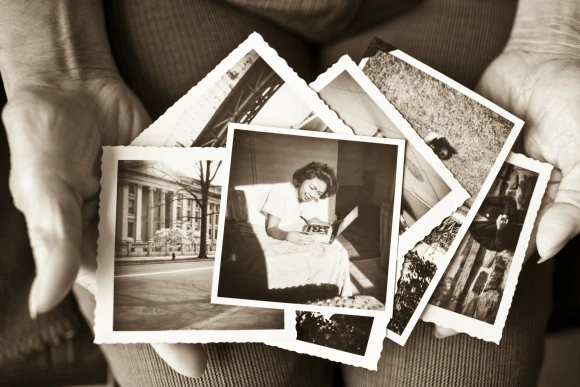Time Required
Around 30 minutes to create the Time Capsule and 15 minutes to revisit it. You can do this practice every few months or every year.
How to Do It
To create the Time Capsule, compile the following items in a blank notebook, scrapbook, or folder on your computer. Skip any that don’t apply.
- A description of the last social event you attended.
- A description of a recent conversation with a friend.
- A description of how you met a new friend or acquaintance.
- The names of three songs you recently listened to.
- An inside joke.
- A recent photo.
- A recent status update you posted on social media.
- An excerpt from a recent paper or project for school or work.
Store the Time Capsule in a place where you won’t see it. Set a reminder on your calendar to revisit it three months later.
Once three months has passed, spend several minutes looking over your Time Capsule. Are you surprised by anything? Does anything strike you as particularly interesting or meaningful, looking back on it now?
Why You Should Try It
We typically document the big milestones of our lives—the weddings, births, graduations, and professional achievements. We assume these are the kinds of events we’ll most want to remember later on. But research suggests that revisiting ordinary, everyday experiences can bring us more joy than we might expect. What seems ordinary in the moment can take on unexpected significance down the road as we take the time to appreciate a simple moment of contentment, a slice of our life that has come and gone.
Why It Works
Research on “affective forecasting” suggests that we’re not great at anticipating our emotional reactions to future events. We tend not to document ordinary events because we underestimate the pleasure of revisiting them—and because we overestimate our ability to remember them. By intentionally keeping a record of these kinds of events, we create opportunities for our future selves to experience boosts in happiness.
While there’s no need to document every detail or save every little memento, taking a few minutes once in a while to note what’s going on in our everyday lives can have unexpected benefits.
Evidence That It Works
Zhang, T., Kim, T., Brooks, A. W., Gino, F., & Norton, M. (2014). A ”present” for the future: The unexpected value of rediscovery. Psychological Science, 25(10), 1851-1860.
Participants who revisited a time capsule of ordinary experiences several months later found the experience more interesting, meaningful, and enjoyable than they expected it to be. They also found it just as enjoyable as revisiting extraordinary experiences (e.g., what they did on Valentine’s Day). After time had passed, ordinary events from the past were perceived as more extraordinary (whereas this effect didn't occur for extraordinary events).
Sources
Ting Zhang, Ph.D., Columbia Business School
The tendency to notice and appreciate ordinary life events is a hallmark of mindfulness. How mindful are you? Take our Mindfulness Quiz to find out.







Comments
and Reviews
Jenyfer Pegg
Martha Everett
The Greater Good Toolkit
Made in collaboration with Holstee, this tookit includes 30 science-based practices for a meaningful life.
The Greater Good Toolkit
Made in collaboration with Holstee, this tookit includes 30 science-based practices for a meaningful life.